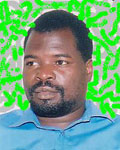Zim telecoms regulator to control high internet costs
"We agree [that] our internet charges in the country are high and we have asked service providers to justify their costs," the Potraz deputy director-general, Alfred Marisa, said on national television Wednesday, 24 November.
"We are going through that right now and are looking at the charges on individual basis and hope by year-end we will be having reasonable tariffs," he said.
Prices remain high
Despite a number of new players entering the market, internet costs remain exorbitant. An industry expert said the cost of a gigabyte in Zimbabwe is between US$98 and US$100.
"For any company transferring data across the web as part their business, the internet bill can add up to a significant amount," said the expert, describing charges by most internet service providers in the country as "a steal".
The government has made efforts to reduce costs by lowering duties on communication and computer equipment imports.
Unreliable power supplies
This has significantly reduced the landing cost of telecommunications equipment in the country, but sector players argue that issues like unreliable power supplies have meant that telecommunications companies spend significantly high amounts of money on generators and UPS systems.
There are hopes that with the coming in of fibre, the playing field could considerably change.
But the hype about fibre has been less reassuring after PowerTel Communication, a subsidiary of electricity firm, ZESA, connected to a 155 mbps STM-1 fibre link through Botswana on the SAT-3 cable to Europe but failed to bring costs down.
Capacity from this link was sold-out within months of service, and industry experts say this was in spite of the fact that it was more expensive and far less reliable than traditional satellite bandwidth, due to technical and congestion issues in Botswana.
"This link is now full, and ISPs like ZOL cannot buy more capacity. Unfortunately, it seems capacity is still being sold somewhere, and this is creating congestion," said ZOL in its note to customers.
TelOne connect to East Africa
ICT Minister Nelson Chamisa has however promised that internet costs will certainly come down once the state-owned fixed line operator, TelOne, connects the country to the Eastern Africa Submarine Cable System (EASSy) - a 10,000km submarine fibre-optic cable system deployed along the east and south coast of Africa linking South Africa with Sudan via landing points in Mozambique, Madagascar, the Comoros, Tanzania, Kenya, Somalia and Djibouti.
EASSy is owned and operated by a group of 16 African and international telecommunications operators and service providers. TelOne is one of the 16 African operators and will complete its link through Telecommunication De Mozambique, one of the other shareholders.
TelOne's acting MD, Hampton Mhlanga, said that connection through Zimbabwe's eastern border city of Mutare to Beira in Mozambique would be completed before year-end. A stretch of only 40km is to be completed to finalise the link and cables to complete the link are now in the country, said Mhlanga.
Chamisa said the link would give Zimbabwe an operational capacity of 10gb per second which would take up to five decades to exhaust in terms of demand.










